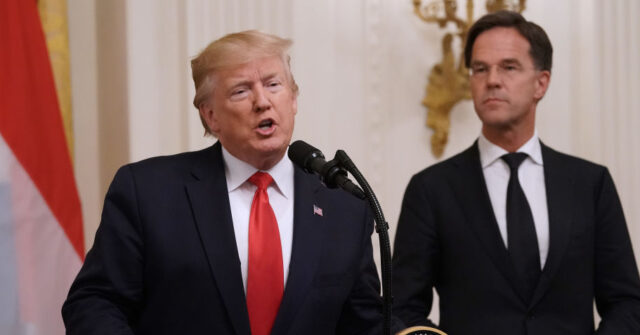Mark Rutte, the new Secretary General of NATO and former Dutch Prime Minister, has expressed optimism regarding future relations with the U.S. regardless of who wins the upcoming presidential election. Often referenced as the “Trump whisperer,” Rutte’s tenure at NATO is backed by his ability to maintain a constructive relationship with Donald Trump during his presidency. In discussions held in London with British Prime Minister Rishi Sunak and Ukrainian President Volodymyr Zelensky, Rutte indicated a desire to continue effective cooperation with Trump if he were to regain office, citing past successful collaboration and shared objectives related to U.S. security through NATO.
In a conversation with The Times of London, Rutte emphasized the importance of NATO in a turbulent global landscape. He firmly believes that any U.S. president, including Trump, would need to acknowledge the alliance’s critical role in maintaining national security. He stated that Trump recognized NATO’s significance, illustrating that cooperation is essential for countries, both large and small, to confront global threats. Rutte’s view insists that the need for strong alliances has only intensified given the complexities of contemporary warfare and geopolitics, reinforcing the notion that Trump, despite prior criticisms, has a vested interest in NATO’s future.
Rutte’s stance on NATO spending aligns with Trump’s previous assertions. He recently argued against the established guideline of a two-percent defense spending commitment for member nations, which he deems insufficient in addressing modern challenges. Rutte highlighted the necessity for a reevaluation of defense spending across NATO member states, proposing an increase to two-and-a-half or even three percent. Such a shift would enhance NATO’s collective capabilities to respond to evolving threats, showcasing Rutte’s proactive vision in preparing the alliance for future challenges.
Rutte’s diplomatic finesse may become crucial for NATO’s future, particularly given the growing uncertainty surrounding global alliances and security frameworks. His historical approach toward Trump’s administration has evolved into constructive dialogue, a quality that differentiates him from other European leaders who often criticized the former president. Rutte has urged a willingness to engage with Trump’s critiques of NATO and to utilize that dialogue as an opportunity to reform the alliance and address its shortcomings, rather than simply denouncing him.
Past statements from Rutte reflect a pragmatic understanding of Trump’s impact on NATO. He has pushed back against the predominantly critical sentiments shared by some European officials, highlighting the need for NATO allies to take their commitments seriously. Rutte’s willingness to acknowledge Trump’s calls for increased defense spending has gained relevance, as criticisms that once seemed like party-line condemnations are now being viewed through a lens of practical necessity. This nuanced outlook underscores Rutte’s commitment to finding common ground in order to strengthen NATO amidst pressures both external and internal.
In conclusion, Rutte embodies a strategic blend of diplomacy and pragmatism as the Secretary General of NATO. His relationship with Trump and understanding of the dynamics of the U.S. political landscape suggest a realistic approach to foster cooperation. By advocating for increased defense commitments and establishing a working rapport with U.S. leaders, Rutte aims to bolster NATO’s role in addressing contemporary global challenges. This optimistic outlook, coupled with a willingness to engage productively with differing perspectives, positions him favorably as a key figure for NATO’s future at a time of potential shifting alliances and evolving threats.

